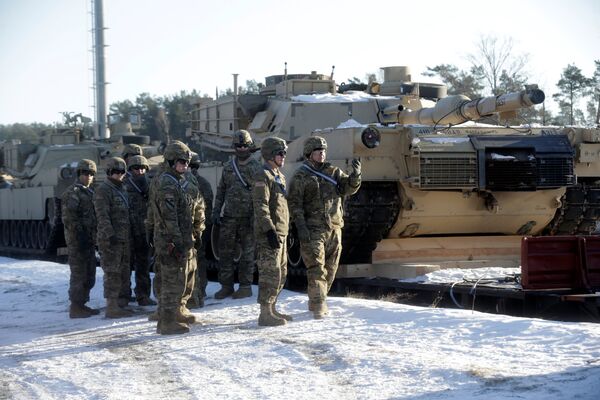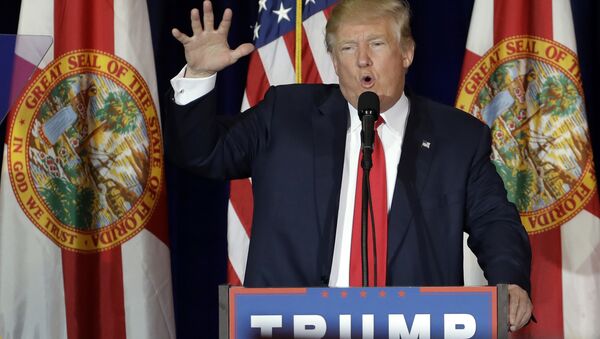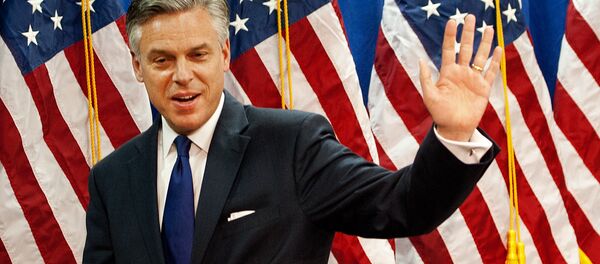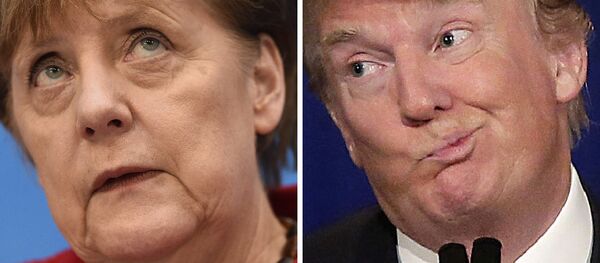Donald Trump's foreign strategy and NATO policy still leave more questions than answers, Professor Hiroshi Nakanishi of Kyoto University notes in his article for Sankei Shimbun.
"Although more than a month has passed since Donald Trump assumed the office, his foreign strategy remains shrouded in fog," Professor Nakanishi underscored.
According to the Japanese academic, in addition to the belated appointments in the Trump cabinet, there is also the problem of leadership within his team.
"The Secretary of Defense [James Mattis] and Secretary of State [Rex Tillerson] belong to the major wing of the Republican Party, but President Trump's associates have adopted a 'radical' position, seeking to reshuffle the existing order," he suggested.
To illustrate his point, Nakanishi drew attention to Vice President Michael Pence and Secretary of Defense Mattis' visit to Europe in mid-February. The US officials took part in a NATO Summit in Brussels and a security conference in Munich.
One may say that the reaction of the Europeans to their messages was ambiguous: some calmed down, while the others got visibly agitated, the professor noted.
The US officials underscored the importance of NATO, in some sense contradicting Trump's earlier statement that the Alliance was an obsolete organization.
At the same time, however, Mattis and Pence demanded that the European NATO member states increased their defense spending.
Commenting on the matter, Nakanishi noted that, as of yet, only a few European countries have met the goal of spending 2% of their GDP on the Alliance. In spending 3.5% of their GDP on the bloc's needs the US still bears the main financial burden.
Although Washington's arguments looked fair, there was rather modest applause for the suggestion from Pence to increase the defense spending, the academic noted.

"However, the problem is not only in the defense budget. Mattis and Tillerson criticized Russia, but did not deny the possibility of reviewing US policy towards Moscow. They highlighted the role of NATO in the Middle East, but did not outline concrete measures [the Alliance should take in the region]," Nakanishi stressed.
"Such an ambiguity is the result of the fragmentation of foreign policy ideas in US power circles," he believes.
While the Republicans continue to follow this course, Trump and his associates never miss a chance to criticize the bloc and openly praise the UK's decision to leave the EU.
The academic noted that Trump's contradictions with Europe may also have serious implications for Japan. Tokyo should not be too optimistic about the future of US-Japanese relations, he warned, adding that Japan needs to team up with European leaders and work out common strategic goals with the EU.
Rossiya Segodnya's political commentator Dmitri Kosyrev doesn't share Nakanishi's pessimism.
In his February op-ed for RIA Novosti Kosyrev pointed out the differences in Trump's approach toward his European and Asian Pacific allies.
The Russian political analyst pointed out that the Trump administration is seeking to bolster its Asian Pacific alliances as a counterweight to China, Washington's major economic and geopolitical competitor in the region.
"In fact, we can say that Trump has begun his real foreign policy by establishing the system of relations around China, the main geopolitical rival [of the US]. Europeans and their ideological allies can wait," Kosyrev wrote.




